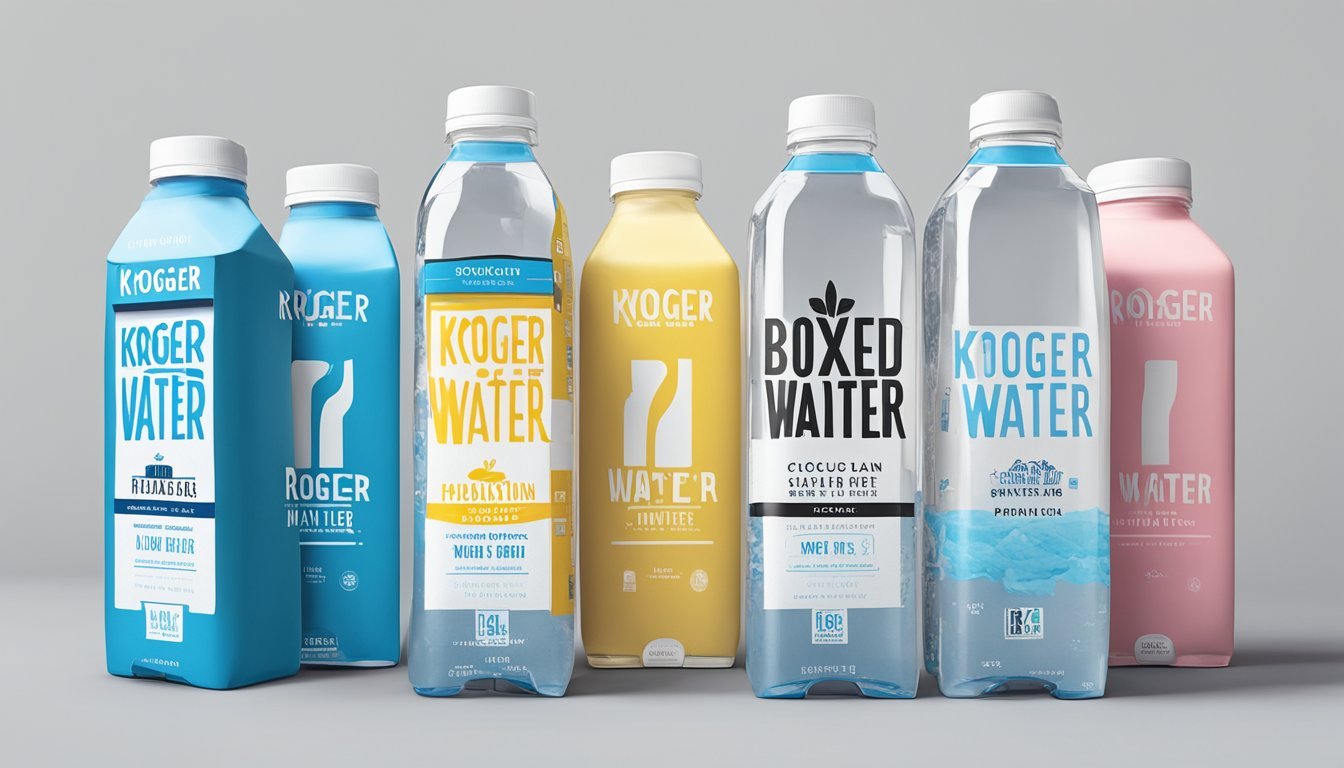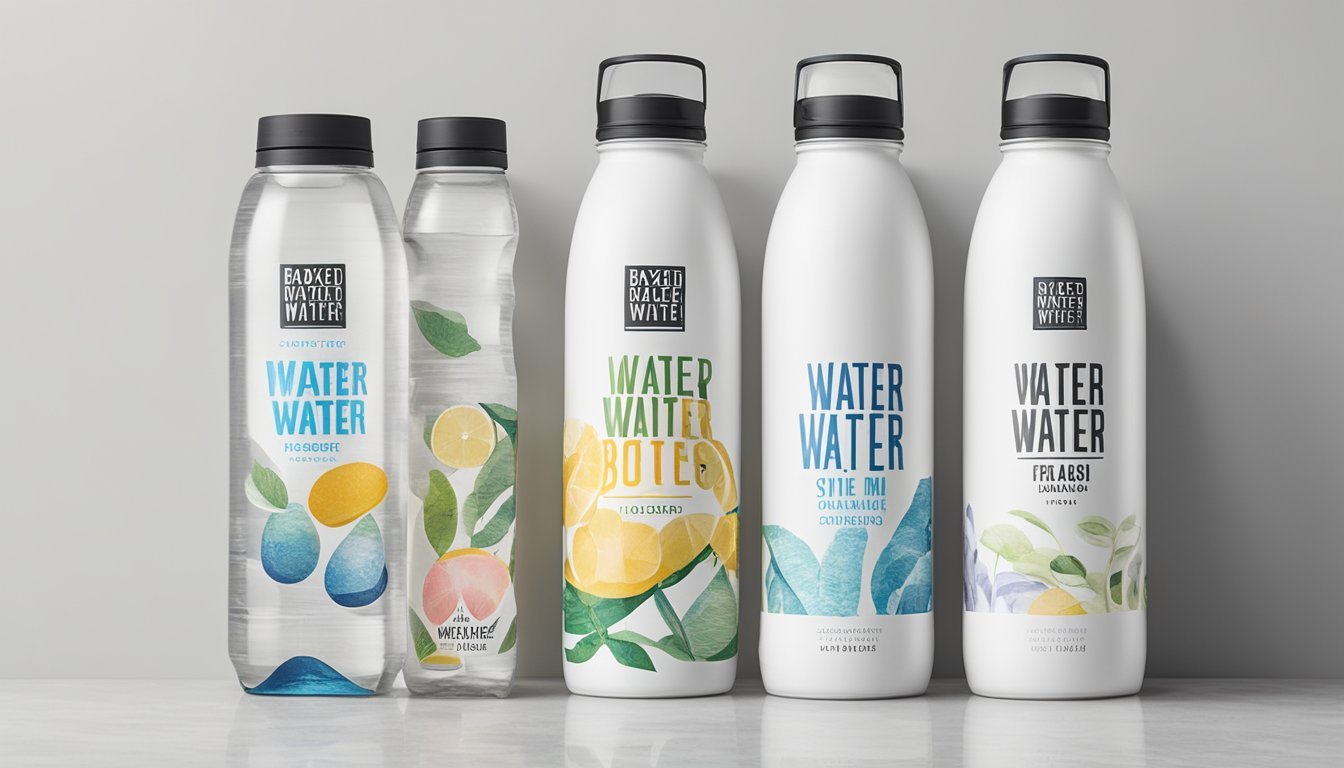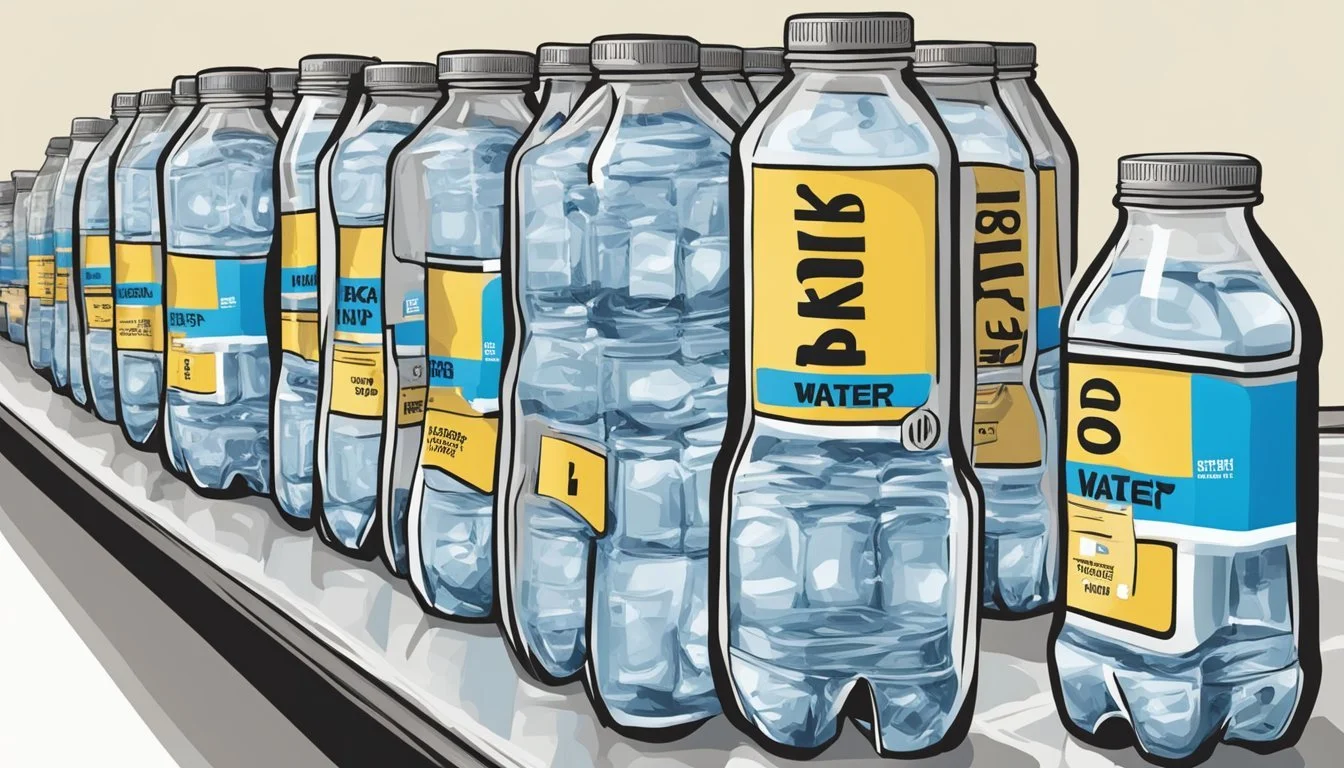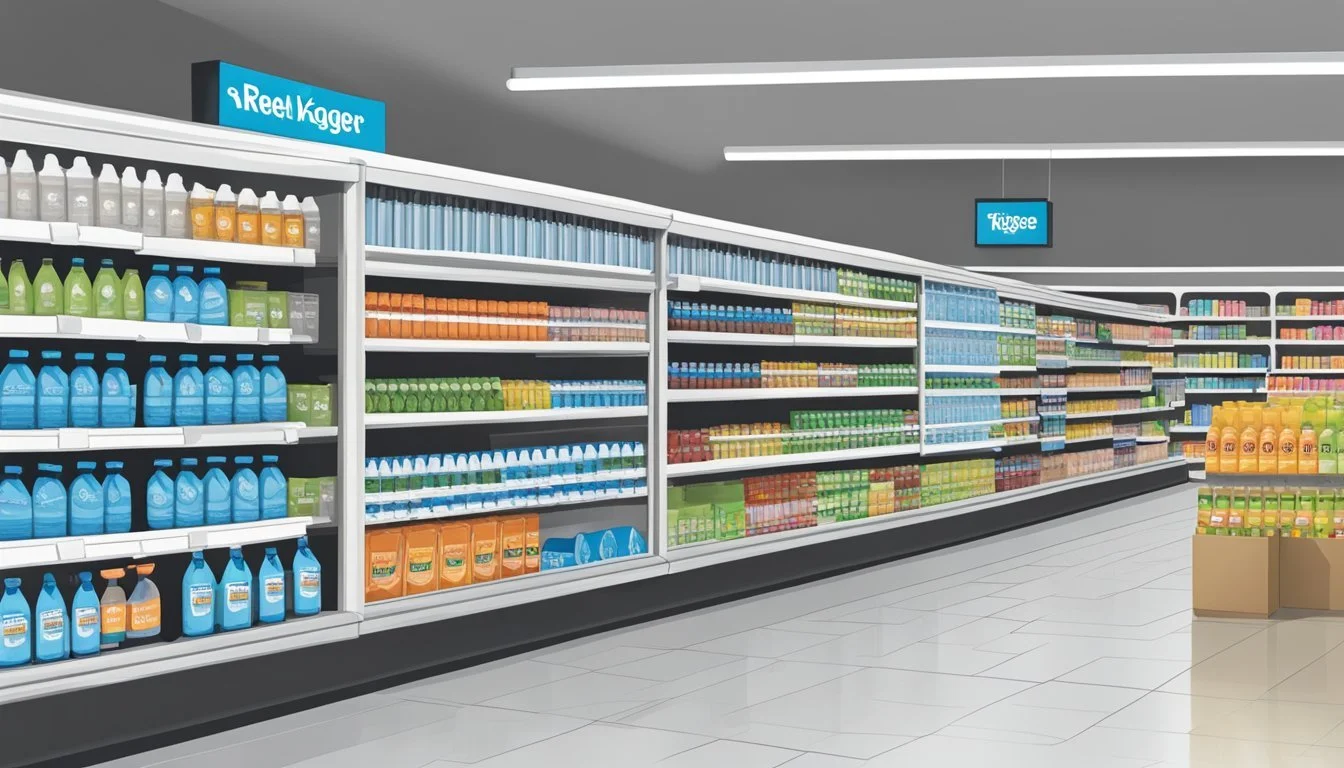Boxed Water vs. Kroger
Comparing Quality and Taste
Boxed water has gained significant traction among environmentally-conscious consumers, but how does it compare to Kroger bottled water in terms of taste, packaging, and sustainability? Boxed Water Is Better, a brand that promotes sustainability through its carton-based packaging, claims to offer a refreshing alternative with its crisp and neutral flavor profile. Made from a mix of sustainable paper, aluminum, and plastic film, Boxed Water appeals to those looking for an eco-friendly water option without compromising on taste.
Kroger, a well-known supermarket brand, offers a wide range of bottled water options that are both affordable and accessible. While Kroger's bottled water might not emphasize eco-friendly packaging as Boxed Water does, it remains a popular choice for many because of its reliable quality and wide availability. Consumers often appreciate the convenience and familiarity of Kroger's water products, making it a staple in many households.
When comparing the two, Boxed Water delivers a more sustainable packaging solution, while Kroger provides cost-effective and easily accessible bottled water. Each brand has its own strengths, catering to different consumer needs and preferences. Understanding these differences helps consumers make informed choices that align with their values and lifestyle.
What Is Boxed Water?
Boxed Water is a brand offering an eco-friendly alternative to traditional plastic water bottles by using cartons made primarily from renewable resources. This packaging is designed to reduce environmental impact and promote sustainability.
History and Development of Boxed Water
Boxed Water was founded in 2009 as a pioneering effort to provide a more sustainable option for bottled water consumers. The company aimed to address the environmental issues associated with plastic bottles by using paper-based cartons. Over the years, Boxed Water has focused on innovation and research, achieving a significant milestone with their cartons being made of 92% plant-based materials. This development sets them apart in the industry, emphasizing their commitment to reducing pollutants and conserving resources.
Distinctive Features of Boxed Water Packaging
Boxed Water's packaging is notable for its milk carton-style design, which is both unique and appealing. The cartons are composed of 74% paper, mainly from responsibly managed forests, 1% aluminum, and 25% plastic film lining. The plastic component ensures the carton remains waterproof and fully sealed, preventing leaks and contamination. The packaging is also designed to be lightweight and easily recyclable, making it convenient for eco-conscious consumers. This distinctive packaging underscores the brand's focus on both functionality and sustainability.
Environmental Credentials of Boxed Water
Boxed Water distinguishes itself through its strong environmental credentials. Compared to traditional plastic and aluminum bottles, the company's cartons have a lower carbon footprint and contribute less to global pollution. Studies conducted by the company indicate that Boxed Water’s packaging leads to reduced ozone depletion and lower global warming potential. Additionally, the cartons are BPA-free and fully recyclable, aligning with the broader movement toward reducing single-use plastics. By choosing Boxed Water, consumers support a brand that prioritizes environmental responsibility and sustainable practices.
Overview of Kroger Bottled Water
Kroger offers a variety of bottled water products, adhering to FDA regulations and focusing on safety and quality. Their commitment to providing affordable and safe drinking water is evident in their practices and market presence.
Kroger's Brand and Market Presence
Kroger is a well-known grocery chain in the United States, recognized for its diverse product offerings. Their bottled water is one of the many products that reflect the brand's emphasis on quality and accessibility.
The brand’s water products are distributed widely across its network of stores.
This significant market presence enables more consumers to access their bottled water easily.
Kroger's established reputation helps instill confidence in their products.
Many consumers rely on Kroger for essential items, including drinking water, due to the company’s adherence to safety and regulatory standards.
Kroger Bottled Water Production and Sourcing
Kroger sources its water from various locations, ensuring it meets stringent quality standards. Their bottled water undergoes rigorous testing for contaminants, including microplastics and BPA, aiming to provide clean and healthy drinking water.
The production process adheres to FDA regulations, ensuring safety and consistency.
Most Kroger plastic bottles are now BPA-free, addressing consumer concerns about potential health risks.
Kroger has initiated practices to enhance sustainability. They focus on reducing the carbon footprint and minimizing environmental impact by encouraging recycling and exploring more sustainable packaging options.
Through these efforts, Kroger aligns with broader environmental goals while maintaining product quality.
Comparing Packaging Solutions
Understanding the impact of different packaging solutions is key when selecting between Boxed Water and Kroger bottled water. Key elements include material composition, health implications, and recycling options.
Box Vs. Bottle: Material Analysis
Boxed Water uses a mix of paper, aluminum, and plastic film. The package is 92% renewable, primarily from FSC-certified paper. This mix is designed to be sustainable and reduce dependency on fossil fuels.
Kroger bottled water typically uses 100% plastic bottles, which are derived from non-renewable petroleum resources.
Key Differences:
Boxed Water: 74% paper, 1% aluminum, 25% plastic film.
Kroger: 100% plastic.
Boxed Water aims to minimize environmental harm, but the effectiveness depends on local recycling facilities.
Health Considerations in Packaging
Boxed Water and Kroger's plastic bottles are both BPA-free, addressing health concerns related to chemical leaching. Boxed Water's materials reduce the risk of chemical exposure.
Boxed Water's packaging avoids potential contaminants found in some plastics, such as phthalates. Its design also emphasizes using plant-based bio-plastic, which is generally considered safer for prolonged storage.
Plastic bottles used by Kroger are also BPA-free, adhering to safety standards. However, concerns remain about microplastics' potential leaching over time, especially if bottles are reused or exposed to heat.
Recycling and Waste Management
Recycling accessibility varies by location, impacting the sustainability of both Boxed Water and plastic bottles.
Boxed Water:
Carton recycling is critical but not universally available.
Renewable materials make it potentially more eco-friendly.
Plastic Bottles:
Widely recyclable, but often end up in landfills due to single-use habits.
Contributes significantly to plastic pollution.
Using large jugs or reusable water bottles can further minimize waste, suggesting that neither option is perfect but both have pathways for reducing environmental impact.
The Environmental Impact and Sustainability
Boxed Water and Kroger bottled water differ significantly in their environmental impact and sustainability. This section explores their carbon footprints, water source protection efforts, and innovative packaging solutions.
Carbon Footprint of Boxed and Bottled Water
Boxed Water brands, such as Boxed Water is Better, claim a notable reduction in their carbon footprints compared to plastic bottles. According to a study, Boxed Water uses 43% less fossil fuel and has a 36% lower carbon footprint. They also contribute 95% less to ozone depletion.
Kroger, on the other hand, mainly utilizes plastic bottles which have a higher environmental impact. Plastic bottles require significant fossil fuel for production and release more greenhouse gases. Recycling rates for plastic are also lower, leading to increased landfill waste. While Kroger may offer some recyclable options, plastic's overall sustainability remains more problematic.
Water Source Protection and Sustainability
Boxed Water sources its water from clean, protected springs in the United States, ensuring minimal environmental disruption. They emphasize water source sustainability, which helps maintain local ecosystems. Their process includes continuous assessment to ensure long-term viability.
Kroger sources water from various local and regional suppliers. The sustainability practices may vary, making it harder to ascertain overall impact. Without stringent guidelines for source protection, there's potential for over-extraction and environmental harm. Consumers may not always be aware of the sourcing details, raising concerns about long-term sustainability.
Packaging Innovations and Future Prospects
Boxed Water stands out with its innovative packaging. The cartons are primarily made from paper, a renewable resource, and are recyclable. Some versions use plant-based plastics for the cap, further reducing environmental harm. Efforts are ongoing to increase the share of plant-based materials in their packaging.
Kroger has started exploring more sustainable packaging options but remains heavily reliant on traditional plastic bottles. They have initiatives to increase the use of recycled content and improve recyclability. However, their future prospects for sustainability in packaging depend on wider industry shifts and consumer demand for greener options.
In summary, Boxed Water leads in sustainability efforts through reduced carbon footprints, better water source management, and pioneering packaging innovations, whereas Kroger faces challenges due to their reliance on plastic.
Health and Safety Standards
Understanding the health and safety standards of Boxed Water and Kroger bottled water involves considering consumer safety, product quality, and regulatory compliance. Both brands need to meet specific criteria to ensure their drinking water is safe.
Consumer Safety and Product Quality
Boxed Water and Kroger bottled water prioritize consumer safety by adhering to stringent health standards. Kroger adheres to FDA regulations, ensuring their bottled water meets safety and quality benchmarks. Concerns regarding microplastics and BPA in plastic bottles have led to many options now being BPA-free.
Boxed Water uses plant-based packaging, which reduces the risk of chemical leaching found in plastic bottles. Both brands often undergo regular testing to check for contaminants such as PFAS chemicals, which have been found in some bottled waters according to Consumer Reports research.
Monitoring and Regulations
The monitoring and regulation of bottled water involve several agencies. For instance, the FDA oversees bottled water regulations, ensuring both Kroger and Boxed Water comply with safety standards. These regulations cover aspects like permitted contaminants levels, bottle labeling, and sanitary condition requirements during production.
Regular testing by independent organizations, such as Consumer Reports, plays a crucial role in maintaining product safety. These tests often reveal the presence of various contaminants found in tap and bottled water, urging brands to maintain high standards of quality. Both Kroger and Boxed Water engage in extensive quality control to ensure compliance and consumer trust.
Market Trends and Consumer Choices
The bottled water industry is shaped by dynamic market shares and the impact of branding on consumer purchase decisions. Understanding these factors is crucial for companies aiming to succeed in this competitive market.
Market Shares and Consumer Preferences
In 2022, single-serve bottled water dominated the market, accounting for 71% of all bottled water sales. This sector reached 11.3 billion gallons, reflecting its significant popularity among consumers. Kroger's bottled water products, along with Boxed Water, cater to different consumer preferences.
Kroger primarily sells bottled water in plastic packaging, aligning with widespread consumer tastes. Boxed Water, on the other hand, has responded to a growing trend towards sustainable and eco-friendly products by offering plant-based packaging.
Consumers are increasingly driven by environmental concerns, preferring brands that offer sustainability. Boxed Water’s environmentally friendly approach is a pivotal factor for this segment. Comparatively, Kroger serves a broader market but continues to emphasize competitive pricing and wide product availability.
Impact of Branding on Purchase Decisions
Branding plays a decisive role in how consumers choose bottled water products. Boxed Water positions itself strongly on sustainability, using packaging made from 92% renewable materials. This branding appeals to eco-conscious consumers who prioritize environmental impact when making purchases.
Kroger leverages its extensive supermarket presence to promote its bottled water, emphasizing affordability and convenience. The visibility of Kroger’s brands in numerous retail locations assures consumers of easy access and reliability.
The contrasting branding strategies between Boxed Water and Kroger illustrate the diverse factors influencing bottled water purchases. Boxed Water’s brand identity targets niche markets valuing green solutions, while Kroger appeals to a wide consumer base through cost and availability.
Case Studies and Partnerships
Boxed Water and Kroger have engaged in several corporate responsibility programs and innovative collaborations to highlight their commitment to sustainability and quality.
Boxed Water and Corporate Responsibility
Boxed Water is involved in numerous environmental initiatives aimed at reducing pollution and promoting sustainability. The brand has partnered with the Ocean Blue Project, an organization dedicated to cleaning oceans and waterways. Boxed Water pledges to plant two trees for every social media post with #BetterPlanet. This initiative aligns with reforestation efforts and has led to the planting of over one million trees in Michigan and other locations.
Their efforts also extend to working with Alaska Airlines. The airline offers Boxed Water on flights, reducing their use of plastic bottles and supporting sustainable travel. This partnership underscores Boxed Water's commitment to environmental responsibility and innovation in their packaging which is 92% plant-based.
Innovative Collaborations and Initiatives
Kroger's approach has been more traditional but still impactful. The company adheres strictly to FDA regulations for water quality, ensuring their bottled water is safe. They have been involved in reducing the use of hazardous materials like BPA in their bottles, addressing health and environmental concerns.
While not as publicly visible with environmental initiatives as Boxed Water, Kroger collaborates with several organizations to improve sustainability practices. For example, they might work with local utilities on water conservation projects or sponsor community events to raise awareness about the recycling of plastic bottles. These efforts are more dispersed but contribute to the company’s sustainable practices.
Boxed Water's broader, more public partnerships in sustainability contrast with Kroger's targeted, health-focused and regulatory-compliant strategies, providing consumers with two distinctly different approaches to bottled water.
Cost Analysis and Affordability
Affordability is a key factor when comparing Boxed Water and Kroger bottled water for most consumers. Often, big retailers like Costco offer discounts on bulk purchases which can significantly impact the overall cost.
Price Comparison
Boxed Water: Typically, Boxed Water costs more upfront due to its sustainable packaging materials like paper, aluminum, and plastic film.
Kroger Bottled Water: Kroger usually offers more competitive prices, especially for generic brands, making it a popular choice for budget-conscious shoppers.
Bulk Purchasing
Purchasing in bulk can lead to considerable savings:
Costco Membership: Consumers who are members of Costco often benefit from bulk pricing on both Boxed Water and Kroger's bottled water.
Example Prices (per 24-pack):
Boxed Water: $15-$20
Kroger Bottled Water: $3-$5
Environmental Cost
Though not a direct financial cost, the environmental impact is worth noting:
Boxed Water: Higher initial cost, but potentially less environmental impact.
Kroger Bottled Water: Lower initial cost, but plastic usage may contribute to higher long-term environmental costs.
In summary, initial cost vs. long-term value and environmental considerations are critical when evaluating affordability between Boxed Water and Kroger bottled water.
Conclusion
Boxed Water and Kroger Bottled Water both offer distinct features and benefits.
Boxed Water focuses on sustainability with its milk carton-style boxes made from 74% paper, 1% aluminum, and 25% plastic. These are designed to be refillable and reduce environmental impact.
Kroger Bottled Water, while adhering to FDA regulations and often being BPA-free, relies on traditional plastic bottles that contribute to pollution and waste.
From an eco-friendly perspective, Boxed Water's paper-based packaging has a lower carbon footprint compared to plastic. The use of aluminum and plastic film ensures the carton remains sealed and waterproof.
In terms of taste, Boxed Water is praised for its crispness and refreshing quality. While Kroger Bottled Water meets quality standards, concerns over potential contaminants like microplastics remain.
If choosing based on environmental impact and sustainability, Boxed Water emerges as a better alternative. For those prioritizing convenience and traditional packaging, Kroger Bottled Water is a viable option.
Bottom line, both products serve different consumer needs, with Boxed Water focusing on eco-friendly packaging and Kroger offering a more traditional approach.






